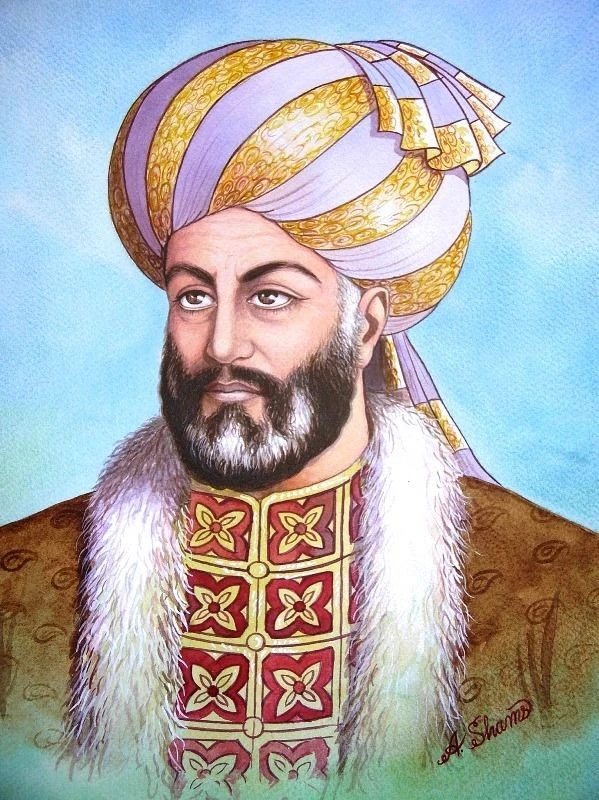In the rugged terrains of South Asia, two neighboring nations—Pakistan and Afghanistan—stand as living examples of how deeply rooted cultural and religious principles can influence legal systems, particularly in matters of transgenderism. Both countries share a rich Islamic heritage, yet their responses to the issue of gender identity could not be more different. In Pakistan, the introduction of the Transgender Persons (Protection of Rights) Act in 2018 sought to recognize self-perceived gender identity, while Afghanistan, under the Afghan Interim Government (AIG), upholds an interpretation of Islamic law that rejects any form of gender fluidity. At the heart of this divide lies a clash between Islamic values and the pressures of modernity, especially as the world grapples with changing concepts of gender.
A Law that Stirs the Soul of a Nation
In 2018, Pakistan made headlines for passing the Transgender Persons (Protection of Rights) Act, a law designed to protect the rights of individuals who identify as transgender. The law grants people the right to self-identify their gender, allowing them to alter official documents to reflect their gender identity. While this move was hailed as a step forward by human rights activists, it stirred a wave of concern among scholars, religious figures, and many within the broader Muslim community.
For those who hold to traditional Islamic principles, this law presented a direct challenge to the teachings of Islam, which clearly define gender as a biological, divinely ordained characteristic. In Islam, men and women are seen as distinct, with roles that are assigned by Allah, and any alteration to this natural order is considered an infringement upon the divine will. The law’s recognition of gender fluidity—an increasingly popular concept in the West—was seen by many as an affront to the fixed roles set forth in the Qur’an and Sunnah.
Although the most controversial articles of the law were later amended, the issue remains deeply ingrained in Pakistani society, especially among the youth. The law, while intended to protect vulnerable individuals, has unintentionally opened the door for ideas that contradict Islamic teachings. LGBTQ+ groups continue to push their agenda, further influencing younger generations, who find themselves torn between the pressures of modern society and the teachings of Islam. This ongoing shift presents a complex challenge for Pakistan’s Muslim identity, as the younger population is increasingly exposed to Western ideologies about gender that are foreign to Islamic values.
The question also arises: how should individuals who are biologically “unfit”—those whose physical characteristics do not neatly align with male or female roles—be treated in Islam? While such individuals are few in number, their situation has been exploited by those seeking to undermine Islamic values. In Islam, clear guidelines exist for the division of wealth and inheritance, where men and women receive shares according to their biological sex. This differentiation is not seen as discriminatory but as part of Allah’s divine order, meant to preserve social harmony and justice.
Afghanistan’s Commitment to Divine Order
In stark contrast, Afghanistan has remained firm in its commitment to Islamic law, especially under the Afghan Interim Government (AIG). The AIG, guided by the interpretation of Sharia, does not tolerate any deviation from the binary understanding of gender. Under this interpretation, there are only two genders—male and female—and the roles assigned to each are divinely ordained, immutable, and non-negotiable.
For those who support Afghanistan’s stance, this unwavering commitment to traditional gender roles is viewed as a return to the purity of Islamic teachings. By rejecting the notion of gender fluidity, Afghanistan is seen as preserving the natural order set by Allah. In this context, the roles of men and women are sacred, and any attempt to change or challenge them is viewed as a direct challenge to the divine wisdom revealed in the Qur’an.
In Afghanistan, gender fluidity and non-binary identities are simply not recognized. This approach is rooted in the understanding that the divine order established by Allah cannot be altered by human desires or ideologies. The belief is that any deviation from this order leads to moral and societal disarray, and thus must be resisted to preserve the integrity of the Muslim community.
Islamic Law and the Preservation of Natural Roles
Islamic law, in its most fundamental sense, emphasizes the importance of maintaining the natural distinctions between male and female. These roles are seen not as social constructs but as divine commands, meant to create balance and harmony in society. The belief in the fixed nature of gender is inextricably linked to the broader Islamic worldview, which sees the divine will as guiding every aspect of human life, including the roles of men and women.
The AIG’s adherence to binary gender roles reflects this fundamental understanding. By maintaining the traditional view of gender, Afghanistan’s approach aligns with what many Muslims believe is the true interpretation of Sharia—a system that preserves the sanctity of Allah’s creation and prevents the disruption of social and familial structures.
Transgenderism: A Tale of Two Paths
While Pakistan’s Transgender Persons (Protection of Rights) Act seeks to accommodate a more fluid understanding of gender, Afghanistan’s stance under the AIG upholds a binary view that aligns with the teachings of Islam. Pakistan’s law, despite its intention to protect the rights of unfit individuals, is misguided. The concept of self-identifying one’s gender, they argue, does not align with the Qur’anic view of gender as a biological and immutable fact. Even though the law is pretended as an aim to provide rights to medically unfit individuals, it inadvertently promotes a Westernized view of gender that conflicts with the Islamic understanding of divine creation.
Afghanistan’s position, by contrast, is seen as consistent with Islamic principles, where gender is a natural and divine distinction, not subject to personal interpretation. The AIG’s rejection of gender fluidity is viewed by its supporters as a necessary defense of the divine order and a safeguard against the growing influence of secular, non-Islamic ideologies.
Also See: Pakistan and Afghanistan: A Brotherhood for Peace, Progress, and Prosperity
Upholding Islamic Values in a Changing World
The story of Pakistan and Afghanistan’s differing approaches to transgender rights is more than just a matter of law; it is a reflection of the deep tension between Islamic principles and the forces of modernity that are reshaping the world. In Pakistan, the introduction of the Transgender Persons Act marked a shift toward a more liberal approach, but it has raised significant concerns about its alignment with Islamic teachings. The law’s promotion of gender fluidity is incompatible with the divine wisdom of Islam.
In Afghanistan, adherence to binary gender roles under the AIG is viewed as a way of protecting the sanctity of Islamic teachings and maintaining societal harmony. This approach, rooted in a deep respect for the divine order, is the only correct path for preserving the values that Islam holds dear.
As the world continues to grapple with changing perceptions of gender, the challenge for Muslim societies is clear: how to remain faithful to the immutable principles of Islam while navigating the complexities of a modern world that increasingly embraces fluid and non-binary conceptions of gender. For Pakistan and Afghanistan, the path forward will require a careful balance between preserving the sacred teachings of Islam and responding to the pressures of a rapidly changing global society.



